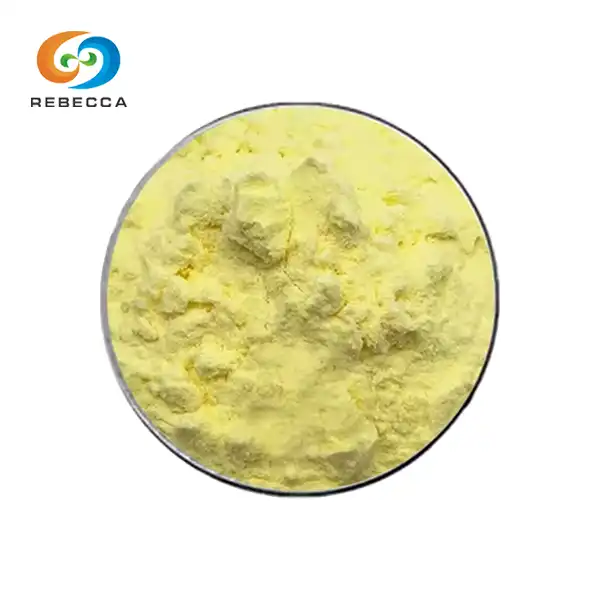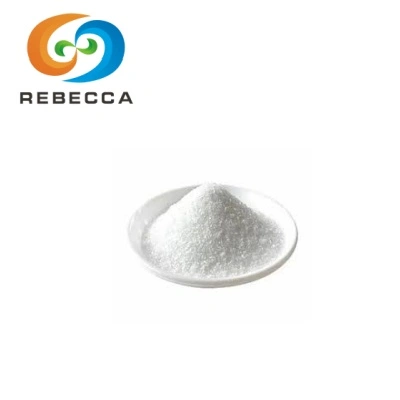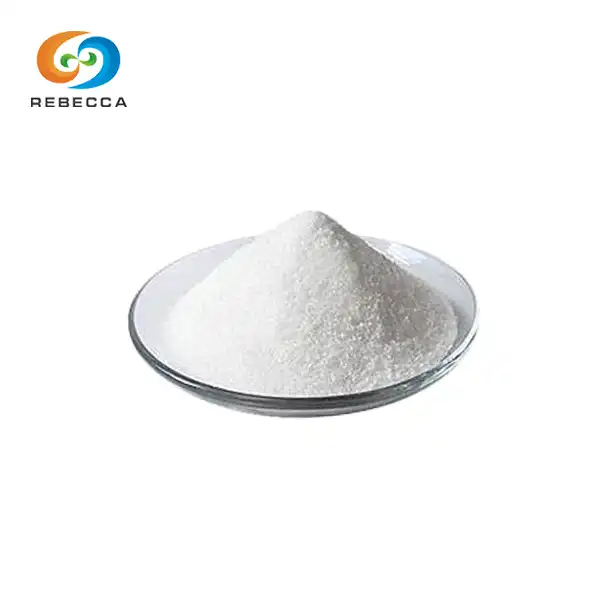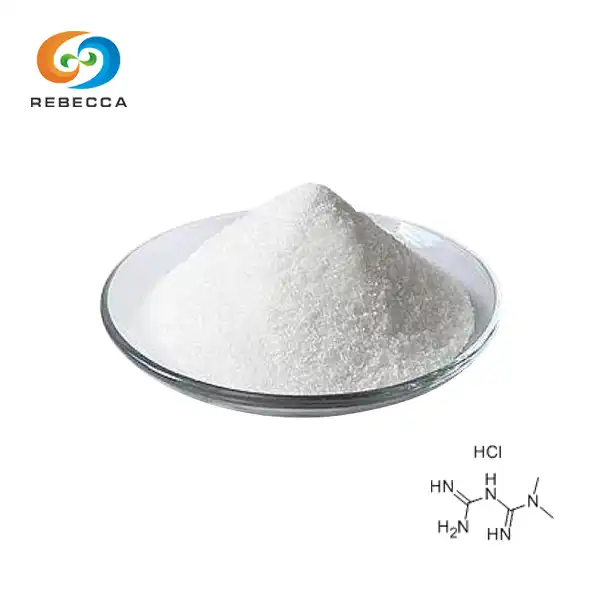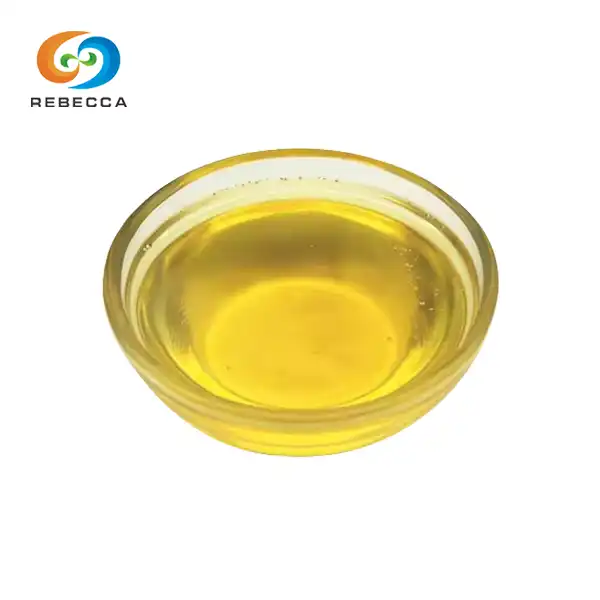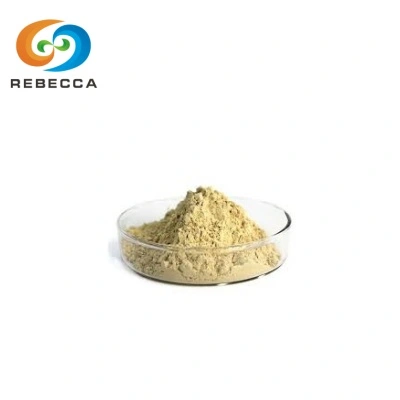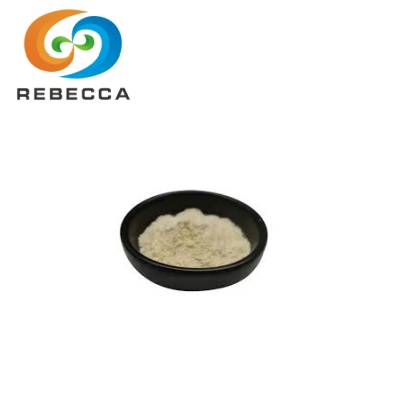Why take alpha lipoic acid?
Alpha-lipoic acid (ALA) is a fatty acid that contains sulfur and the body may make modest amounts of it. In recent years, it has become a prominent element in health supplements.
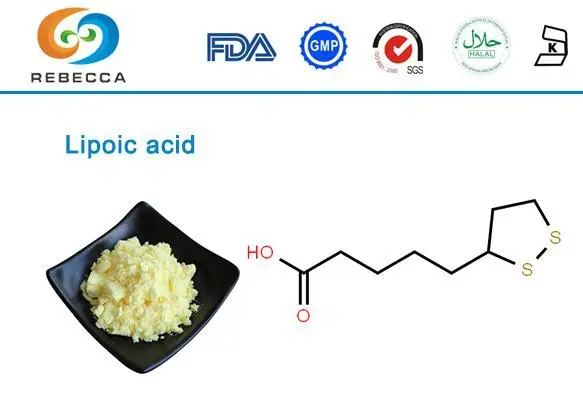
Alpha Lipoic Acid Powder
Product Name:alpha lipoic acid
CAS No.:1077-28-7
Specification:99%
Test Method:HPLC
Appearance:Light yellow to yellow powder
I. Alpha-lipoic Acid: A "Comprehensive Nutrient" Naturally Present in the Body
To understand why it is necessary to take ALA, it is essential to understand its core characteristics. This nutrient plays a crucial role in the energy metabolism of human cells and possesses multiple properties adapted to various health needs. Its unique advantages are the scientific basis for its numerous subsequent health benefits.
①Natural Properties and Forms of Existence
Alpha-lipoic acid is naturally present in human mitochondria and is an important cofactor for enzymes related to energy metabolism, maintaining the basic processes of cellular energy conversion. It primarily exists in two configurations. The R-form is the naturally synthesized form in the human body, directly participating in physiological activities, with a bioavailability more than 30% higher than the mixed configuration. Synthetically produced alpha-lipoic acid is mostly a 1:1 mixture of the R and S forms. High-quality supplements preferentially use the pure R-form or the more stable sodium R-lipoate form. Clinical data shows that after oral administration of pure R-form alpha lipoic acid, peak plasma concentrations are reached within 1-2 hours, with a bioavailability of approximately 40%, far exceeding the 25% of the mixed formulation.
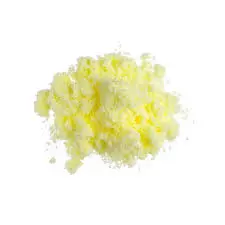
② Dual Solubility Advantage: A Systemically Accessible "Health Messenger"
Alpha-lipoic acid is different from other antioxidants in that it can dissolve in both water and fat. This makes it a "health messenger" that may be used throughout the body. Research indicates that it can permeate more than 90% of the body's tissue barriers, operating not only in the bloodstream and interstitial fluid but also integrating into cell membranes and traversing the blood-brain barrier—following oral administration, its concentration in cerebral tissue can attain 65% of the plasma concentration, a benchmark challenging to reach with conventional antioxidants like vitamin C and vitamin E. This wide distribution throughout the body helps it sustain important organs including the brain, heart, and nervous system.
③ Redox Cycle: Important for Long-Term Effect
Alpha-lipoic acid may change between oxidized and reduced forms in the body. The reduced form, dihydrolipoic acid, is also a strong antioxidant. More importantly, it can activate other antioxidants through a "regeneration cycle." A study published in Free Radical Biology & Medicine* found that alpha lipoic acid can boost the regeneration of vitamin C by 50%, vitamin E by 70%, and glutathione levels in the body by more than 35% at the same time. The "1+1>2" impact works together to make its antioxidant effect last longer and cover more ground.
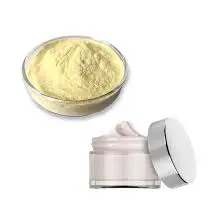
II. Core Benefits of Taking Alpha-Lipoic Acid: Health Assistance Supported by Scientific Data
After learning about the fundamental qualities of alpha-lipoic acid, it's even more vital to look at how it helps health in many ways. These advantages aren't just talk; there are a lot of clinical studies and statistics that back them up. They cover a lot of basic necessities for keeping your health up, from protecting your cells to making things better overall.
①Strong antioxidant that protects cells from damage caused by free radicals.
Free radicals are "harmful substances" that the body makes on its own as it breaks down food. Long-term buildup can harm cells, speed up aging, and may happen more quickly because of things like pollution and UV exposure. Alpha-lipoic acid is a very powerful antioxidant. Lab tests reveal that its antioxidant activity is 20 times stronger than vitamin C and 60 times stronger than vitamin E. This is far stronger than conventional antioxidant substances like grape seed extract.
An 8-week intervention study with 200 middle-aged and older adults found that taking 600 mg of alpha-lipoic acid (ALA) every day lowered levels of malondialdehyde (MDA), which is a sign of oxidative stress, by 28% and raised levels of superoxide dismutase (SOD), which is a sign of antioxidant capacity, by 32%. At the same time, its dual solubility protects organs that are important for metabolism, such the liver and kidneys. Another clinical study indicated that giving long-term alcohol consumers 300 mg of ALA per day lowered their alanine aminotransferase (ALT) levels by an average of 23%. This is a sign of liver cell damage and helped lessen the effects of alcohol.

② Enhancing Metabolic Health and Elevating Energy Levels
Alpha-lipoic acid is a "helper" in cellular energy metabolism. It helps the body turn fats and carbs into energy more quickly. A randomized controlled trial published in *Diabetes Care* demonstrated that among 300 insulin-resistant participants, a 12-week intervention with daily supplementation of 300 mg of alpha-lipoic acid led to an average reduction of 0.8 mmol/L in fasting blood glucose, a 22% enhancement in insulin sensitivity, and a 15% decrease in the 2-hour postprandial blood glucose peak. This is a good way for those who need to keep their blood sugar in check to take care of their health every day.
A research on reducing fatigue in working adults revealed that taking 200 mg of alpha-lipoic acid every day for four weeks lowered fatigue scores by 37% and raised the average length of time that people were alert by 2.3 hours. This impact is connected to its capacity to boost mitochondrial energy metabolism efficiency—experiments demonstrated that alpha-lipoic acid may raise mitochondrial ATP generation by 29%, providing cells with a more ample energy source.

③Safeguarding Nerve Function and Easing Peripheral Discomfort
Because of how it is made up, nerve tissue is very sensitive to oxidative injury and changes in blood sugar levels. Many studies have shown that alpha-lipoic acid helps keep nerves healthy. A 16-week clinical trial shown that daily supplementation with 600 mg of alpha-lipoic acid (ALA) decreased numbness and tingling sensation ratings by 40% and enhanced nerve conduction velocity by 18% in those experiencing peripheral nerve pain. This is because it can lower oxidative stress damage to the myelin sheath and boost the production of nerve growth factor.
Another study on cognitive performance in older adults reported that taking 400 mg of ALA every day for six months improved memory test scores by 25% and increased attention span by 30%. This is because it can get through the blood-brain barrier and raise the amounts of antioxidants in brain tissue by 45%, which protects nerve cells from damage caused by free radicals.

④ Keeping the heart and gut healthy and making the body's foundation stronger
Recent research indicates that ALA contributes positively to gastrointestinal and cardiovascular health. A study from 2025 published in Nature Communications by the West China Hospital of Sichuan University found that adding alpha-lipoic acid (ALA) to the diets of older mice increased the number of intestinal stem cells by 50%, improved the antibacterial and repair functions of Paneth cells by 38%, and ultimately made the intestines move more efficiently by 42%. This explains why ALA can help relieve constipation in older people.
A study team at Ain Shams University in Egypt revealed that ALA can cut oxidative damage to vascular endothelial cells by 47% while also enhancing myocardial microcirculation perfusion, which boosts blood flow to the heart by 26%. Observational studies on patients with prehypertension indicated that daily supplementation with 300 mg of ALA resulted in an average drop of 5 mmHg in systolic blood pressure and 3 mmHg in diastolic blood pressure after 8 weeks, providing modest and safe support for cardiovascular health.
III. Who is suitable for ALA supplementation? Data-driven scientific choices
Alpha-lipoic acid has several advantages, but not everyone needs to take more of it. According to scientific research, the following types of people are more likely to benefit from its advantages. Supplementing when needed enhances the nutritional benefits and prevents unnecessary ingestion.
1. People in their 40s and 50s
People over 40 years old may make alpha-lipoic acid 40% less than younger people, and this number drops to 60% beyond age 60. At the same time, oxidative stress levels in the blood rise by 80%. Taking alpha lipoic acid can help with these changes that happen to the body as it gets older. A long-term study of persons aged 60 to 75 found that taking 200 to 400 mg every day can lower the danger of neurological deterioration by 35% and the chance of digestive pain by 40%. This can help people retain their quality of life as they get older.
2. People Who Don't Live a Healthy Life
People who smoke, consume alcohol, stay up late, or are exposed to pollution have more than 60% more free radicals in their systems than healthy people. This greatly raises the risk of oxidative damage. Research has demonstrated that daily supplementation of 300 mg of alpha-lipoic acid in this cohort can reinstate the functionality of the antioxidant network to 85% of that observed in healthy persons after four weeks, thereby mitigating the adverse effects of detrimental behaviors. Supplementation can boost metabolic efficiency by 22%, cut weariness by 37%, and help people stay physically active for longer periods of time if they don't exercise much or eat a lot of fat.
3. People who have certain health needs
If you need to keep your blood sugar in check, especially if you're pre-diabetic and your fasting blood sugar is between 5.6 and 6.9 mmol/L, research reveals that taking alpha-lipoic acid will help you reach your goal blood sugar control 30% faster. Supplementation led to a 65% reduction in symptoms for people with peripheral nerve pain, such as those who stand for lengthy periods of time or those who feel numb in prediabetes. And for individuals who want to enhance their skin, taking 200 mg every day for 8 weeks cut the amount of fine wrinkles by 28% and made the skin seem 32% better. This is because it stops oxidative damage to skin cells and boosts collagen production.
If you want to know more about Rebecca's alpha lipoic acid powder, such as how it has been used successfully in different research or application projects, more technical details, or if you are sure you want to buy it and want to know how to do so and how much it will cost, please email us at information@sxrebecca.com.
References
[1] Gomes MB, et al. Alpha-lipoic acid as a pleiotropic compound with potential therapeutic use in diabetes and other chronic diseases[J]. Diabetol Metab Syndr, 2014, 6(1):80.
[2] Du G, et al. Lipoic acid rejuvenates aged intestinal stem cells by preventing age-associated endosome reduction[J]. EMBO Rep, 2020, 21(8):e49583.
[3] Mahmoudinezhad M, et al. Alpha lipoic acid supplementation affects serum lipids in a dose and duration-dependent manner in different health status[J]. Int J Vitam Nutr Res, 2021 Oct 4.
[4] Research team from Ain Shams University, Egypt. Alpha-lipoic acid significantly reduces the risk of no-reflow after myocardial infarction[J]. Future Journal of Pharmaceutical Sciences, 2025.
[5] Research team from West China Hospital, Sichuan University. Alpha-lipoic acid delays intestinal stem cell aging by remodeling Paneth cell function [J]. Nature Communications, 2025.
